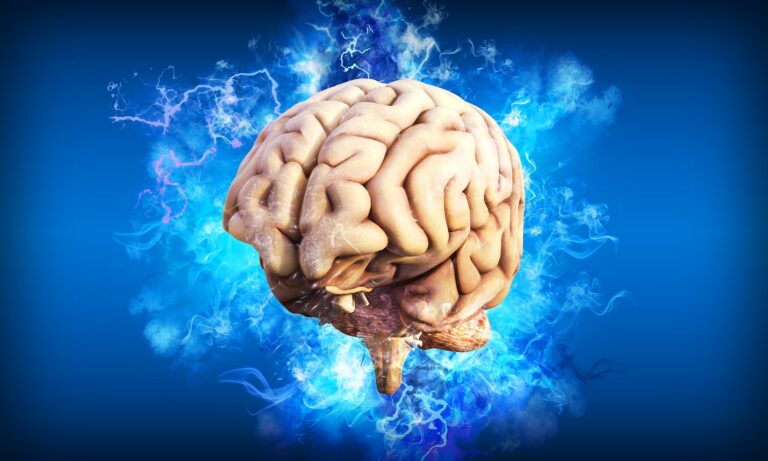
Optimistic Nihilism, Existential Nihilism, Existentialism, Nihilism vs. Existentialism and Absurdism, what’s the difference? It can be bewildering, especially as these are all philosophical concepts that have been debated and discussed for decades, but each concept deals with the meaning of life, our place in the world and the nature of reality. While these concepts may seem heavy and difficult to understand, they offer unique perspectives on life and can help us find purpose and meaning in our existence despite being materialist philosophies that on the whole, reject the existence and idea of a higher power, a supreme being or creator god.
“God is dead. God remains dead. And we have killed him. How shall we comfort ourselves, the murderers of all murderers? What was holiest and mightiest of all that the world has yet owned has bled to death under our knives: who will wipe this blood off us? What water is there for us to clean ourselves? What festivals of atonement, what sacred games shall we have to invent? Is not the greatness of this deed too great for us? Must we ourselves not become gods simply to appear worthy of it?” – Friedrich Nietzsche.
Existentialism is a philosophical movement that emphasizes individual existence, freedom, and choice. It argues that the individual is responsible for creating their own meaning and purpose in life. This philosophy is often associated with famous philosophers such as Jean-Paul Sartre, Friedrich Nietzsche, and Martin Heidegger. Sartre for instance famously said that we’re ‘condemned to be free,’ in other words we have so much freedom we often find it difficult to know what to do with it.
“Man is condemned to be free; because once thrown into the world, he is responsible for everything he does.” – Jean-Paul Sartre.
Existential nihilism, on the other hand, is a belief that life has no inherent meaning or purpose. It argues that existence is ultimately meaningless and that all human actions are ultimately futile. This philosophy can be quite depressing, as it suggests that life is essentially pointless, many adherents of such ‘pessimistic nihilism,’ have done a good job of marking this philosophical position out as one that delivers poor mental health over the years, but this isn’t necessarily true, because Nihilists can also be ‘optimistic.’
Optimistic or Happy Nihilism
Optimistic nihilism offers a refreshing take on the bleakness of nihilism. Rather than wallowing in the absence of inherent meaning in life, it celebrates the freedom that comes with it. Most ‘Happy Nihilists,’ accept that there is no divine being or creator of the universe that can gift us with a purpose, this also means that there is no one to judge your existence on the merit of your actions, neither God, nor friends or family have the right to judge your deeds and whenever they do so we are free to reject their judgments as being arbitrary and not that important to us unless of course we decide otherwise.
The judgement of others shouldn’t affect our peace of mind because both good deeds and bad ones will eventually be swallowed in time by the heat death of the cosmos making all human actions essentially meaningless and without morality when compared to the vast expanse of the universe and endless time. This is a useful framing device that can help us diminish whatever problems it is that are weighing us down, reminding us that in the long run they are not that important. In a hundred years it’s very likely that nobody will remember or even care!
This philosophy encourages you to live in the present moment and to find joy and fulfilment in the small things in life. While events may seem important or impactful in the moment, they are ultimately valueless in the grand scheme of things. By embracing this philosophy, you are free to live life on your own terms and to let go of any past pains or future anxieties. This emphasis on the present moment is similar to the concept of “carpe diem” and encourages you to live life to the fullest now rather than waiting for some future moment of happiness and has surprising overlaps with some spiritual traditions such as Buddhism, Daoism and a few varieties of Mystic thought.
“We are not human beings having a spiritual experience. We are spiritual beings having a human experience.” – Martin Heidegger.
It’s important to note that this philosophy doesn’t deny the existence of meaning or purpose altogether. Instead, it suggests that what we find to be meaningful such as getting married and raising children, getting high pay and status and so on is purely the result of biology and our genetic makeup rewarding us for doing things that enhance our chances of passing on our genes into the next generation or other behaviours wrapped up in Nietzsche’s conception of ‘The Will to Power.’ While we may feel a sense of purpose or fulfilment in certain experiences, intellectually we understand that this too is a fiction. As thinkers, optimistic nihilists would rather confront unpleasant truths than cling to pleasant fictions.
Absurdism, existential nihilism, and existentialism are all related philosophical concepts that also explore the meaning of life and our place in the world. While they offer different perspectives, they all acknowledge the fundamental uncertainty and chaos of life. These philosophies encourage us to embrace the absurdity of life and to find meaning and purpose in the face of chaos.
In contrast, nihilism and existentialism are often pitted against each other as opposing viewpoints. Nihilism argues that life has no inherent meaning, while existentialism emphasizes individual freedom and responsibility for creating meaning. However, optimistic nihilism offers a bridge between these two philosophies by acknowledging the lack of inherent meaning in life while also encouraging us to create our own purpose and meaning even though we recognise that such meaning and purpose is an illusion, a fiction of meaning that is not actually meaningful in the greater world of atoms and void. Optimistic nihilism is a philosophy that embraces the freedom and lack of inherent meaning in life.
It encourages us to live in the present moment and to find joy and fulfilment in the small things in life. While other philosophical concepts may explore different aspects of the human experience, optimistic nihilism offers a unique perspective that can help us find happiness and fulfilment in the face of life’s challenges. This philosophy encourages individuals to embrace the absurdity of life and find joy and fulfilment in the present moment.
Absurdism
Absurdism is a philosophical concept that was first popularized by the French philosopher and writer Albert Camus in his famous essay, “The Myth of Sisyphus.” This philosophy proposes that the human search for meaning and purpose is ultimately futile, as the universe is inherently chaotic and absurd. Absurdism suggests that life is meaningless and there is no inherent value or purpose to our existence. This philosophy is not to be confused with nihilism, which is the belief that life has no value or purpose. Absurdism is different because it acknowledges that even though there is no inherent meaning, we still have a natural inclination to seek purpose and meaning.
According to absurdism, the universe is absurd because there is no ultimate purpose or goal to our existence. We live in a universe that is indifferent to our struggles and desires. Absurdism posits that our search for meaning is ultimately futile because it is impossible to find an objective meaning or purpose to life but we should nevertheless pretend that meaning does exist, that it can be found and continue to seek it anyway even though we intellectually understand that this is not possible.
“The absurd is the essential concept and the first truth.” – Albert Camus
However, despite the inherent absurdity of our existence, absurdism suggests that we should embrace life and find our own meaning and purpose. The philosophy of absurdism encourages individuals to create their own purpose and find value in their own lives. This means accepting the absurdity of life and finding joy and fulfilment in the present moment. The philosophy of absurdism is closely related to existentialism and nihilism. Like existentialism, absurdism emphasizes individual freedom and responsibility for creating meaning. Like nihilism, absurdism acknowledges the lack of inherent meaning in life. However, absurdism offers a more positive outlook, encouraging us to find value and purpose in our own lives.
In summary, absurdism is a philosophical concept that suggests that the universe is inherently absurd and that our search for meaning and purpose is ultimately futile. Despite this, absurdism encourages individuals to embrace the absurdity of life and find their own meaning and purpose in the present moment.
In conclusion, the concepts of optimistic nihilism, existential nihilism, existentialism, nihilism vs. existentialism and absurdism are all important philosophical concepts that can help individuals find purpose and meaning in life. While each philosophy offers a unique perspective on the meaning of life, they all share the common goal of helping individuals find joy and fulfilment in their existence. By embracing the lack of inherent meaning in life and creating their own purpose and meaning, individuals can find happiness and fulfilment in the present moment. This is a deeply nuanced and thoughtful topic, that only aspect of which have been included in the previous discussion, as always we encourage you, the reader to dig deeper and discover your own truths along the way.

